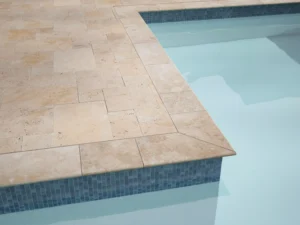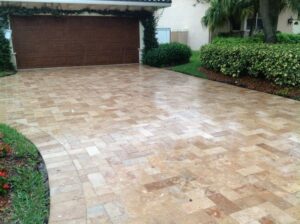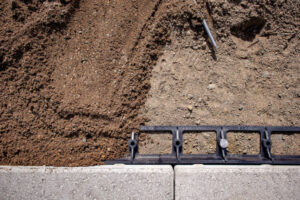Pavers, or paving stones, are flat construction units made of stones, brick, or concrete used normally as exterior flooring. Pavers are the go-to choice of most Americans when it comes to creating beautiful driveways, walkways, patios, and pool decks. But we’re sure that’s not all you want to know about pavers, right?
In this article, you will find out everything you need to know to make sure pavers are the right choice for you.
Jump to:
What are pavers made of? Which material should I choose?
Paving stones are either actual stones, bricks, or brick-like units made of concrete. Each paver material offers a different set of characteristics, pros, and cons. Let’s review them.
Natural Stone Pavers
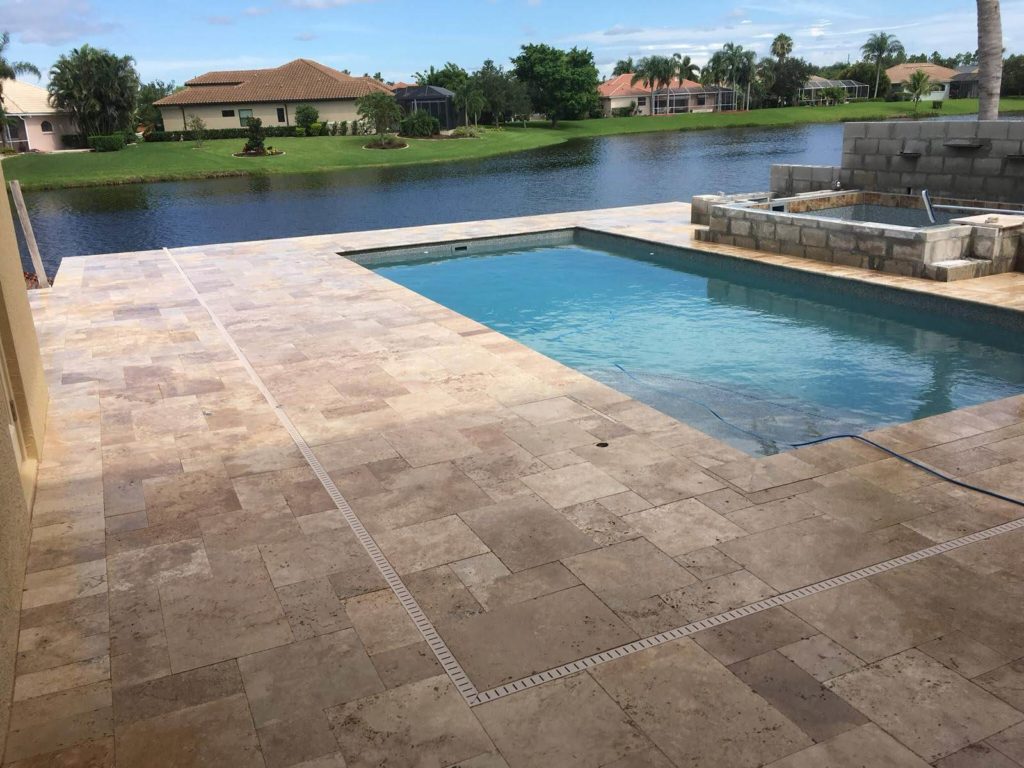
Natural stones have been used as a construction material for as long as human beings can trace back to. Pavers made of natural stone are extremely durable and offer unique characteristics depending on the stone of choice.
Almost all natural stones can be used as paver material, however, more commonly you will find pavers made of:
- Travertine
- Granite
- Basalt
- Slate
- Flagstone
- Fieldstone
- Cobblestone
Brick Pavers
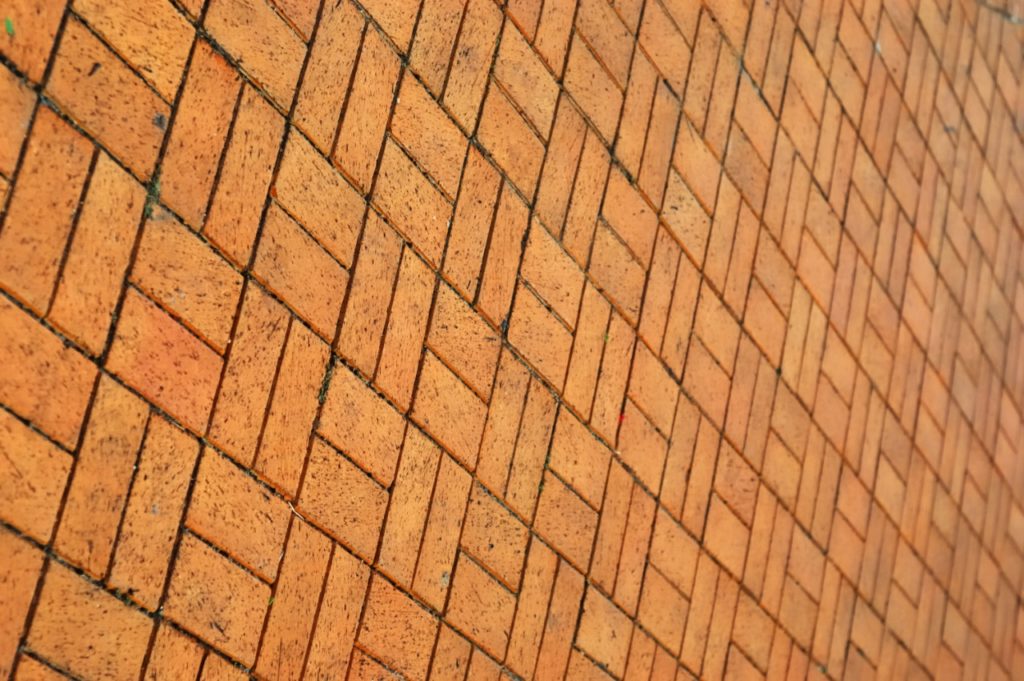
Pavers are made of clay is what call bricks. Cast in forms, and then heated, and can be obtained naturally on many colors by mixing various types of clay.
Used as construction and paving material for thousands of years, brick pavers can be used to obtain a classic and distinct look in patios, driveways, and garden paths.
If you’re looking for a traditional design with great durability and color retention, brick pavers might be the right choice for you.
Concrete Pavers
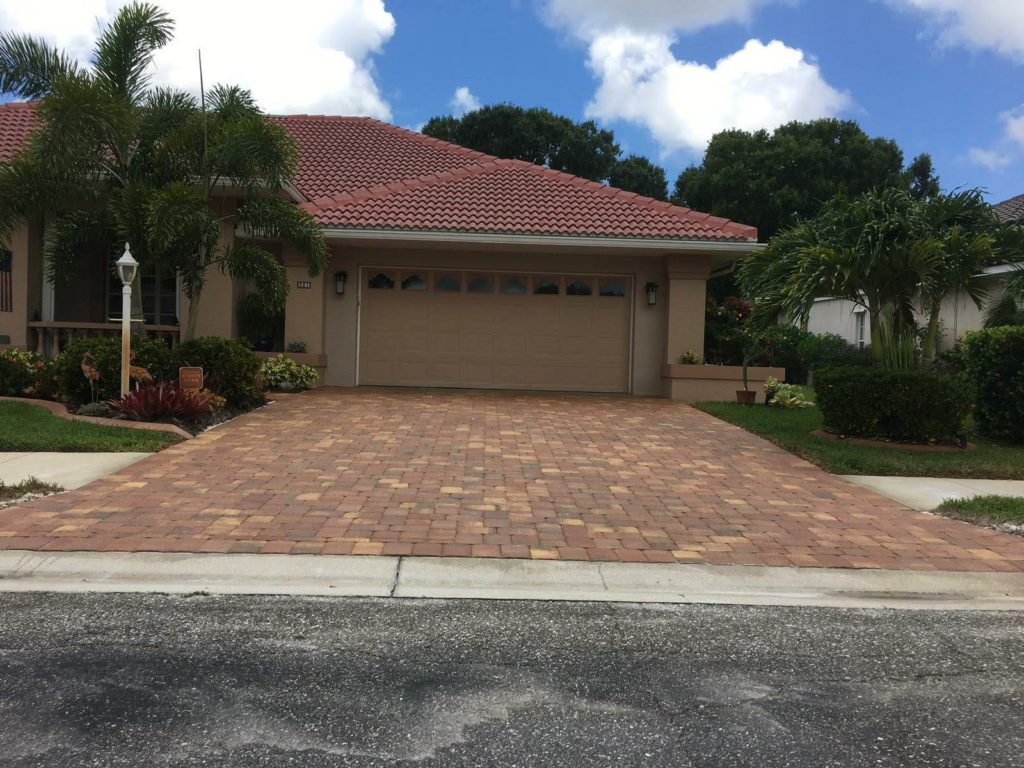
These pavers are a tough, cost-effective, and handsome choice that’s versatile enough for any application and brings a wide range of benefits to any project.
Concrete pavers are manufactured using a concrete mix containing sand, aggregate, and water to which various additives can be added for color and specific performance characteristics. The result is a sturdy, weather-resistant material, proven to withstand constant exposure to heavy loads that can be found in numerous styles.
When it comes to price, concrete is the cheaper choice, followed by brick and then natural stone.
You might also be interested in: “Brick vs Concrete Pavers: How to choose”.
Paver Color, Shape & Size Options
One of the greatest things about going with pavers is the versatility they provide in terms of design!
Pavers are offered in almost all colors, shapes, and sizes you can think of, plus, they can be installed in a variety of laying patterns. The result of combining all these factors is sure to fit any design style.
Paver Durability & Maintenance
Pavers are extremely durable and will easily last from 30 to 50 years. While concrete slabs normally tend to crack with time and require expensive replacement, pavers are up to 4 times more durable. Even so, if a crack does happen, you will only need to replace affected units, which is extremely cheaper compared to replacing an entire concrete slab.
When it comes to maintenance and cleaning, paver won’t bug you much. Other than basic cleaning, paver joint sand will require some attention to avoid loosening and weed growth, however, that too can be avoided completely if you opt for polymeric sand. Concrete pavers should be sealed regularly to avoid stains.
Are Pavers Better Than Concrete Slabs?
If you’re considering paving options for your exterior areas, pavers vs concrete is a comparison that’s definitely crossing your mind. Here is a quick facts table that will help you get a clearer picture.
| Pavers | Concrete | |
| Appearance | More Visually Appealing | More Limited |
| Durability | Higher | Lower |
| Maintenance | Low | Low |
| Repairs | Easy, Unexpensive | Complicated, Expensive |
| Cracks | Will Hardly Happen | Will Likely Happen |
| Resale Value | Adds considerable value | Adds minimum value |
| Cost | Higher Short Term, Lower Long Term | Lower Short Term, Higher Long Term |
If you’re still wondering which one is right for you, we see no reason not to go with pavers unless your budget is not large enough for it. However, be sure to get a free estimate before jumping to conclusions, your project might be cheaper than you think, especially here in Florida.
You will appreciate our article for a complete comparison: “Pavers vs Concrete: Pros, Cons and Cost Comparison”.
Wanna find out more about pavers? Feel free to navigate our website, you will find tons of interesting content. Start with our FAQ page on pavers.
FAQ
Bricks are made exclusively from clay, while pavers can be made out of concrete or natural stone. Many refer to “brick” when talking about the shape of a paver, but be aware that doesn’t mean that it is, in fact, a brick.
When talking about sheer price, yes, concrete is cheaper. However, when it comes to maintenance and durability, pavers are considered to be a highly better investment.
Yes, they are. The raw materials used in the making of concrete pavers are cheaper, and the end product becomes more resistant and uniform compared to brick, which also makes the installation process easier and less expensive.
You can, but be careful. That is not recommended when talking about a permanent installation. A proper paver installation takes time and effort. This article can help you with a permanent installation, while this one offers a quick guide on how to lay them on dirt.
Paver are usually used as exterior flooring and stepping stones.
Typically, no. Pavers last longer and are better used when a proper installation is made, with proper bedding and planning.
In the short term, concrete is cheaper. However, concrete doesn’t even come close to paver when it comes to long term investment. In the long run, pavers are way cheaper.

